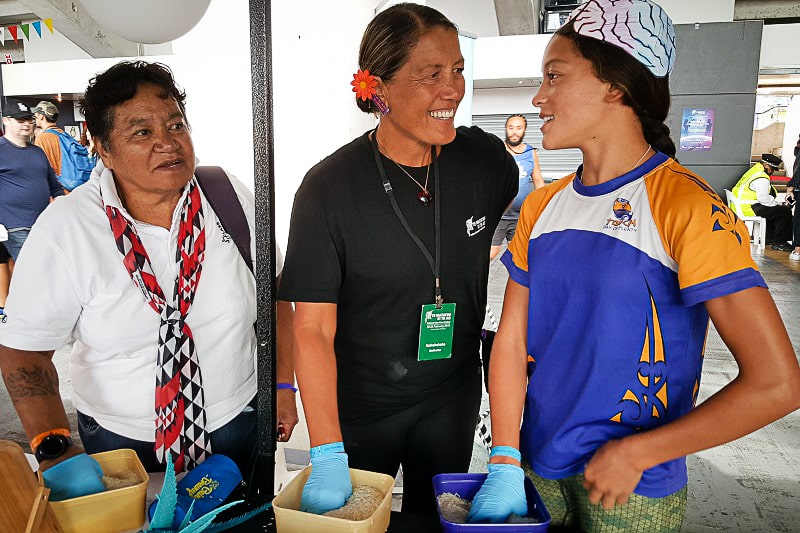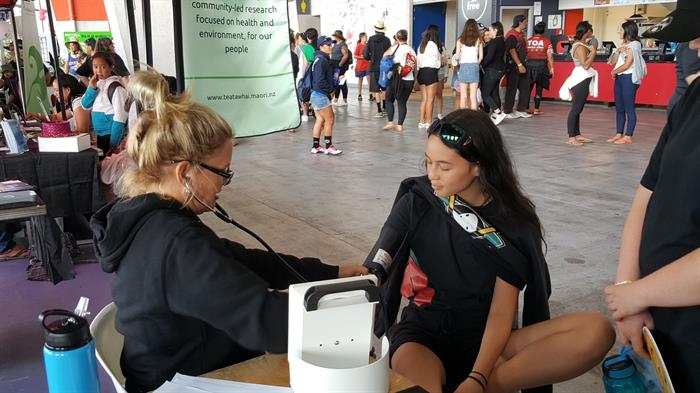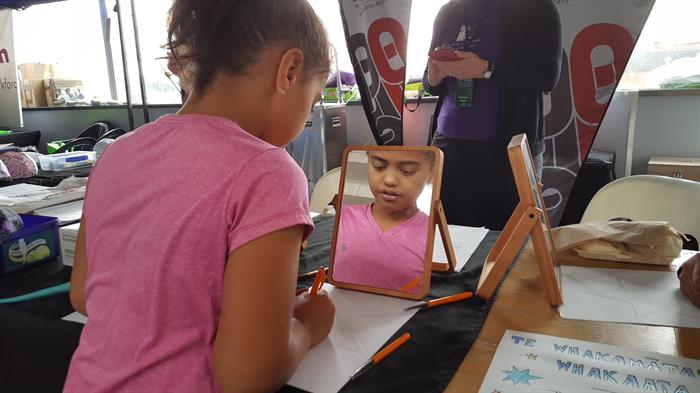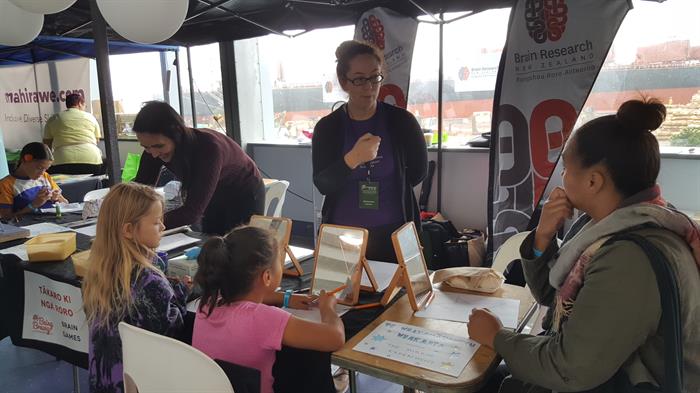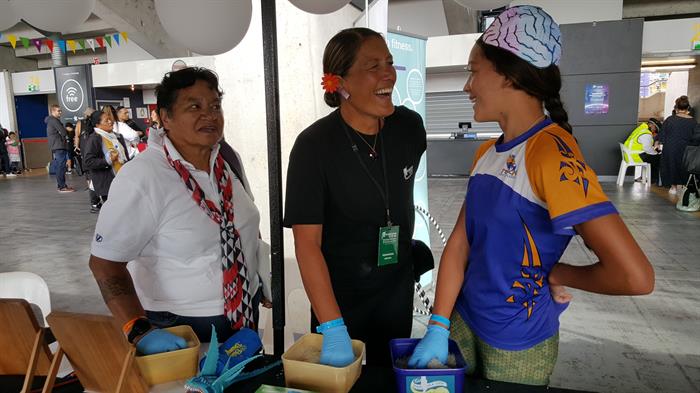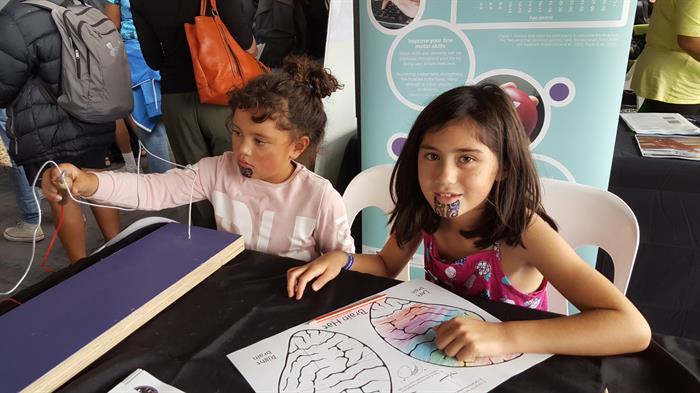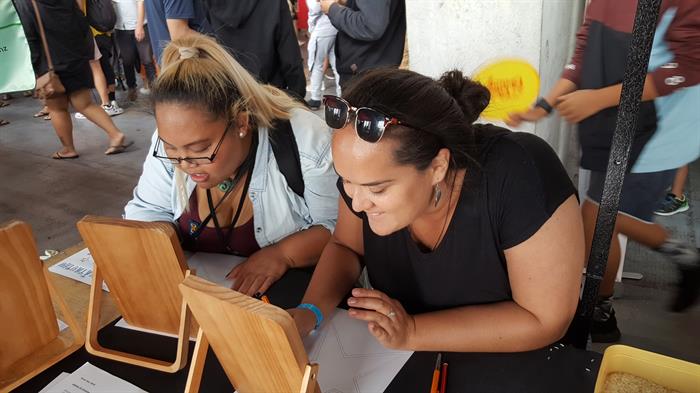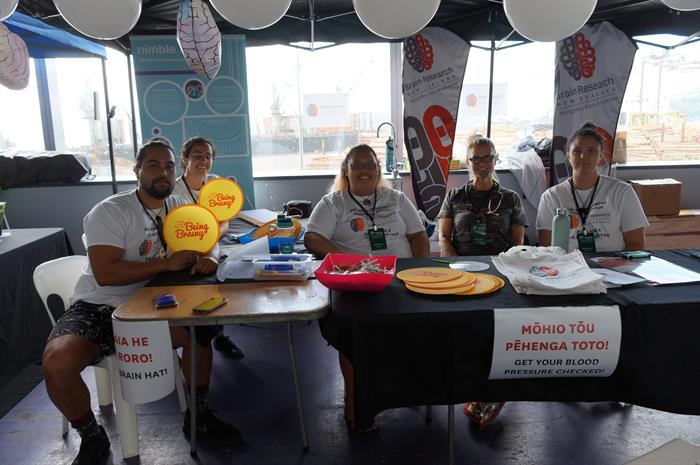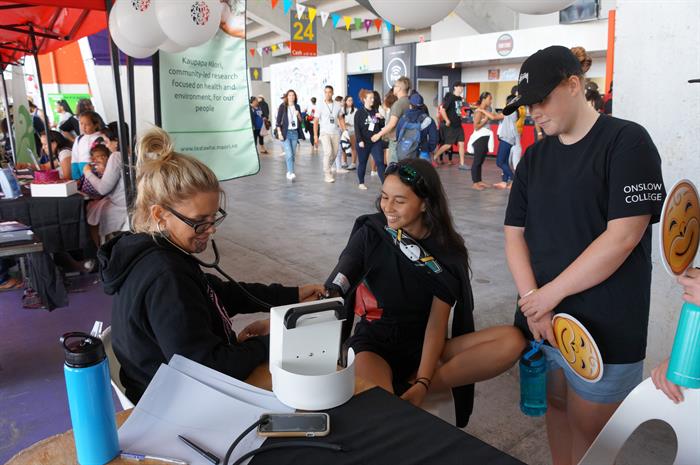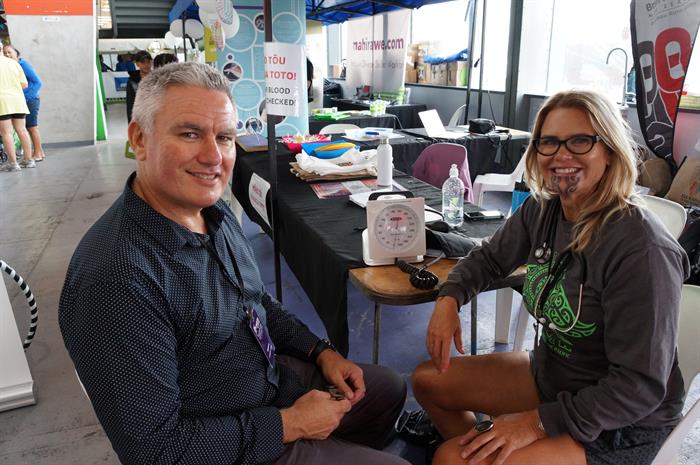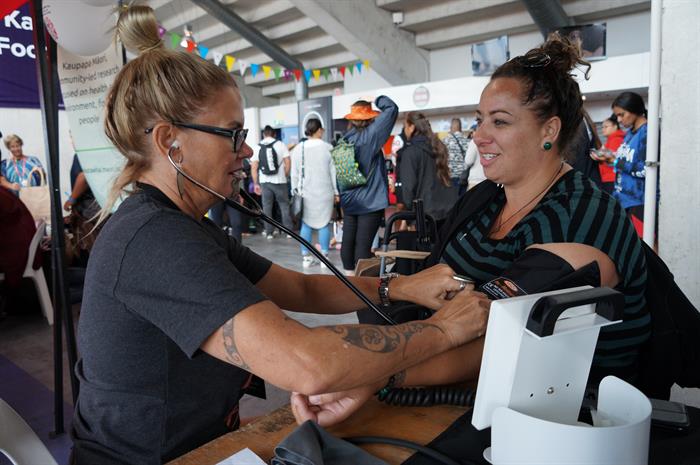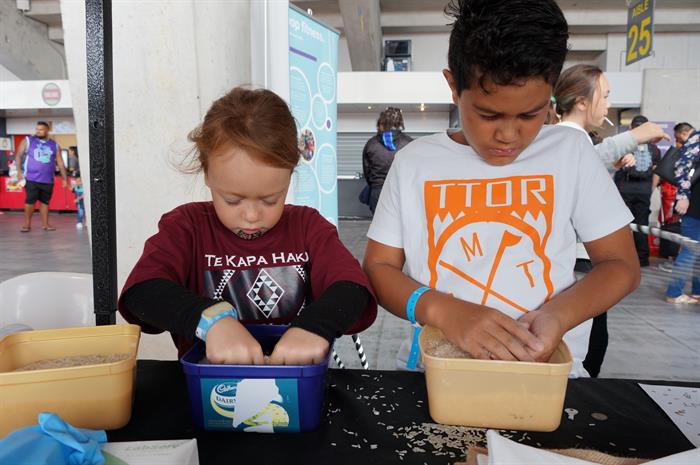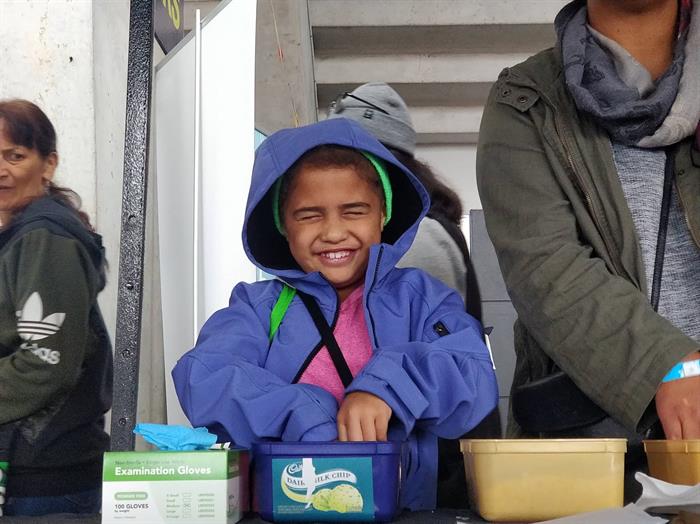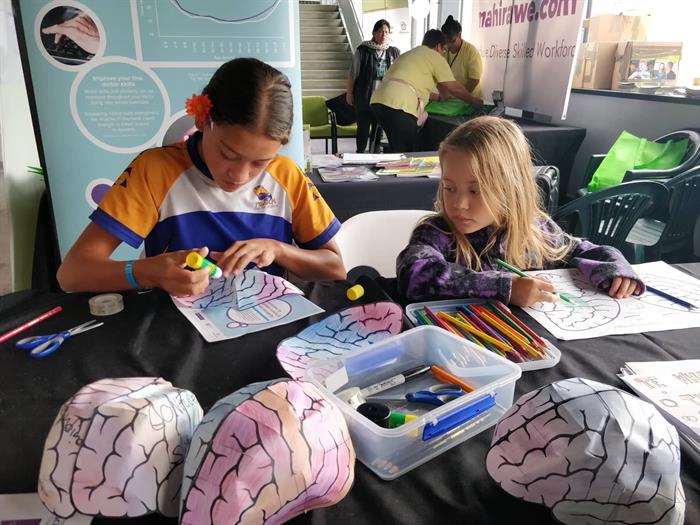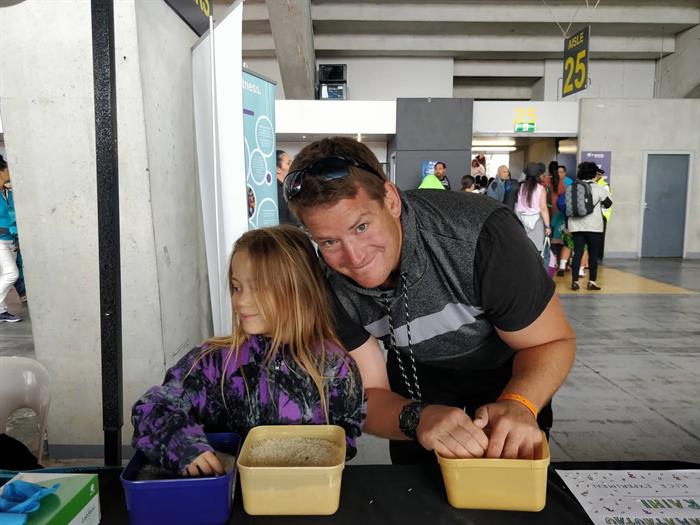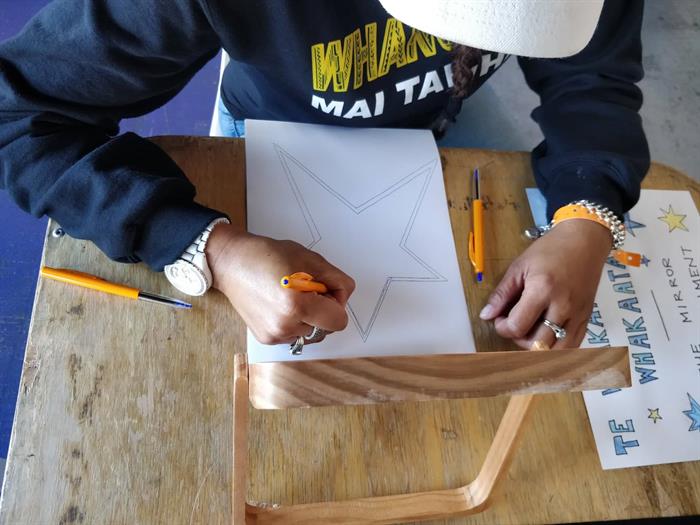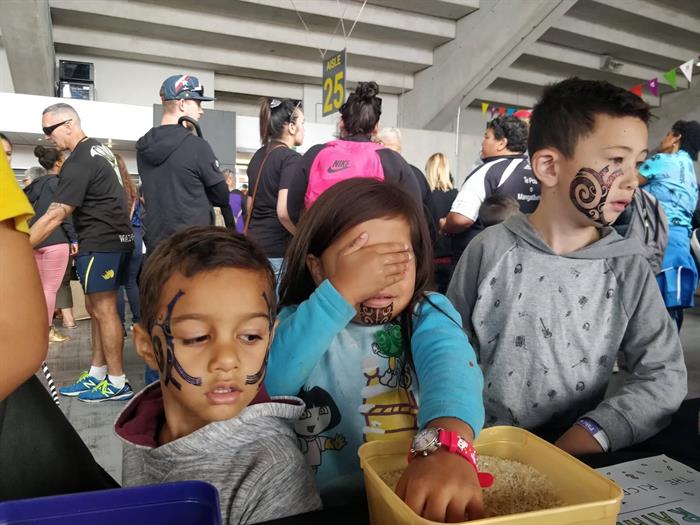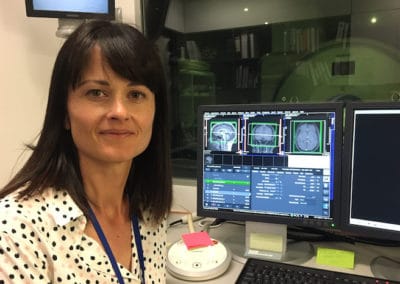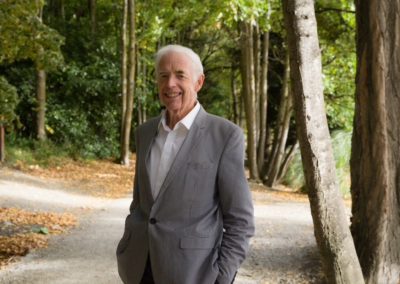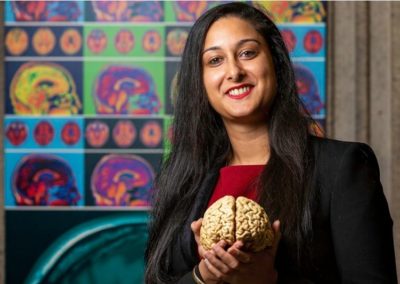From the very beginning of Brain Research New Zealand – Rangahau Roro Aotearoa (BRNZ), it has been our aim to partner with Māori to help improve Māori health outcomes and to support the development of a thriving Māori neuroscience and healthcare workforce. Engaging with Māori communities, sharing our work and findings, and actively seeking their feedback allows us to do research that is culturally responsive and grounded in te reo me ona tikanga.
While we have established strong relationships with our community partners Te Kura Kaupapa Māori o Hoani Waititi Marae and Kāti Huirapa Rūnaka ki Puketeraki, we also jump at opportunities to build new relationships and work with the wider Māori community. In February 2019, Te Matatini, the national kapa haka festival, provided us with the perfect occasion to do just that.
Te Matatini is considered the pinnacle of Māori performing arts and one of the most significant cultural events in New Zealand. This year it was held in Pōneke (Wellington) and marked the second time that BRNZ had a presence at the event.
Over the course of 4 days, 46 groups performed for fans and supporters from all across New Zealand – over 60,000 in total! And BRNZ was right in the midst of it.
Our stall showcased various aspects of our work, and both Early Career Researchers and senior researchers were busy answering questions and discussion our research, and the work we do with Māori communities. On the first couple of days, Dr Hinemoa Elder did over a hundred free blood pressure checks. “Taking people’s blood pressure was my way of connecting in a useful way with audiences and providing something they might not have gotten around to doing,” she comments. (Read more about her experience at Te Matatini here.)
The weekend was all about brain games! Nicole Edwards, a PhD student in Professor Bronwen Connor’s lab, led experiments from the Being Brainy programme, a science programme for schools developed by neuroscientists at the University of Auckland and Otago. Hundreds of people tried their luck finding mystery objects in rice, drawing objects while looking only into a mirror, buttoning up shirts with their non-dominant hand; and listened in fascination how these experiments demonstrate how our brains work (or don’t work!), and what brain damage can feel like. The visitors loved being challenged and many of them came back to give it another go or to improve their ‘score’.
We also invited the Ageing Well National Science Challenge to share our booth and Dr Louise Parr-Brownlie, Principal Investigator at BRNZ and Co-Director of Ageing Well, joined us to talk about the research both centres are undertaking.
Te Matatini was a special and valuable occasion to discuss our work and build new connections within the wider Māori community – after all, it does not happen every day that so many Māori come together in one place. The next Te Matatini will be held in Tāmaki Makaurau (Auckland) in 2021, hosted by Ngāti Whātua, and we look forward to being part of it again!
